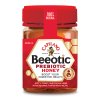- Joined
- 26 March 2014
- Posts
- 20,499
- Reactions
- 13,425
How many people here follow Professor Brian Cox ? Exceptional scientist and communicator. Just watched his latest series on The Forces of Nature.
Fascinating ideas and the trips to various parts of the globe and different cultures to explore the ideas is brilliant. Well worth the time.
[video]http://iview.abc.net.au/programs/forces-of-nature-with-brian-cox/ZW0469A001S00[/video]
He's an excellent communicator in all strands of science. The best I've seen.

